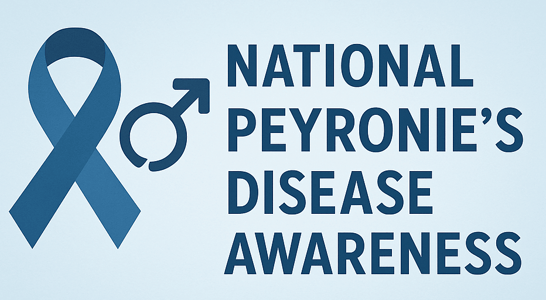
World Lung Cancer Day
Help raise awareness and support research into lung cancer, so we can prevent, treat, and eventually cure one of the most common and deadly cancers.
Lung cancer continues to be one of the most common cancers worldwide, claiming more lives yearly than breast, colon, and prostate cancers combined.
It is estimated that lung cancer accounts for nearly one in five cancer deaths globally. In 2012, there were 1.8 million newly diagnosed cases of lung cancer alone.
The American College of Chest Physicians (CHEST), alongside members of the Forum of International Respiratory Societies (FIRS) commemorates, celebrates and supports those impacted by lung cancer.
FIRS joins the grassroots efforts of the lung cancer community to raise awareness about lung cancer and its global impact, creating an educational movement of understanding lung cancer risks as well as early treatment around the world.
How to Celebrate World Lung Cancer Day
It is important that IASLC members help communicate the vast threat lung cancer poses around the world.
They need the public and the media to understand that new research, diagnosis and treatment breakthroughs in the last 10 years have brought new hope to patients and their families.
To help spread the message about lung cancer, the IASLC created a series of fact sheets focusing on different regions around the globe and have translated them into several different languages. You could look up some of these and inform friends and family about the risks and factors contributing to them.
The History of World Lung Cancer Day
Lung cancer was a rare disease in early 20th century but its incidence has gradually increased with increased smoking and it has become the most common type of cancer in the world.
The lung cancers accounts for 12.8% of cancer cases and 17.8% of mortalities of cancer worldwide. Lung cancer is a preventable disease.
The factors that play a role in cancer development include tobacco products, industrial products (uranium, radiation, asbestos) air pollution, and nutritional deficiencies. Recent studies have demonstrated that the critical factor increasing the risk of lung cancer is the long-term respiration of carcinogenic materials.
Epidemiologic case-control studies by 1950s proved that smoking was strongly correlated with lung cancer. The first findings that smoking was a cause of lung cancer were published in 1962.
Smoking is responsible for developing lung cancer by 94%. The risk of lung cancer is 24-36 times higher in smokers than in non-smokers.
The risk is 3.5% in passive smoking. Age to start smoking, period of smoking, number of cigarettes smoked, and type of tobacco and cigarette have influence on the risk of developing lung cancer.
The IASLC World Conference on Lung Cancer (WCLC) is the world’s largest meeting dedicated to lung cancer and other thoracic malignancies.
More than 7,000 delegates come from more than 100 countries to discuss the latest developments in thoracic malignancy research.
Attendees include surgeons, medical oncologists, radiation oncologists, pulmonologists, radiologists, pathologists, epidemiologists, basic research scientists, nurses and allied health professionals and patients.
World Lung Cancer Day FAQs
What are some lesser-known risk factors for lung cancer beyond smoking?
Exposure to radon gas, a naturally occurring radioactive gas, significantly increases lung cancer risk.
Occupational hazards, such as prolonged contact with asbestos, arsenic, or diesel exhaust, also contribute to the likelihood of developing the disease.
Is there a connection between historical air pollution events and lung cancer awareness?
The Great Smog of London in 1952, caused by coal pollution, highlighted the dangers of poor air quality.
This disaster led to studies linking air pollution to lung cancer. Today, World Lung Cancer Day reinforces the importance of clean air and its impact on lung health.
Are there any historical figures who battled lung cancer, bringing attention to the disease?
Entertainer Dean Martin, known for his singing and acting career, was diagnosed with lung cancer in the early 1990s, highlighting the disease’s impact on public figures.
Similarly, actor Steve McQueen’s battle with mesothelioma, a type of lung cancer linked to asbestos exposure, brought attention to occupational hazards associated with the disease.
What are some unusual awareness campaigns for lung cancer in recent years?
In 2020, a campaign in the Netherlands placed massive inflatable lungs in city centers to emphasize lung health.
In the U.S., some organizations hosted breath-holding competitions to spark conversations about the importance of lung capacity. These creative initiatives encourage public engagement.
Are there cultural superstitions or myths about lung health?
Some cultures believe consuming specific herbs or foods can “cleanse” the lungs, though these lack scientific backing.
In parts of Asia, people avoid sleeping under fans due to a myth that it harms breathing. While these beliefs can spark discussions, science remains key in understanding lung health.
How has the perception of lung cancer changed over time?
In the past, lung cancer was stigmatized as a “smoker’s disease.”
However, modern campaigns emphasize that non-smokers can also develop it due to factors like genetics or pollution. This shift helps reduce blame and promotes support for all patients.
Why is white the symbolic color for lung cancer awareness?
White represents air and breath, the elements vital to lung function. It also signifies hope and new beginnings, aligning to improve survival rates.
Awareness campaigns often feature white ribbons to symbolize this connection.
How does air pollution contribute to lung cancer cases globally?
Air pollution, particularly fine particulate matter (PM2.5), penetrates deep into the lungs, causing inflammation and cellular damage that can lead to cancer.
The World Health Organization estimates that outdoor air pollution contributes to approximately 15% of lung cancer deaths worldwide.
Are there any famous movies or books about lung cancer awareness?
The film The Fault in Our Stars indirectly raised awareness about cancer, including lung-related challenges.
Documentaries like The Air We Breathe focus specifically on air pollution and its link to lung disease, drawing attention to the global issue.
What advancements in lung cancer treatment have emerged in recent years?
Recent advancements include targeted therapies that attack specific cancer cell mutations and immunotherapies that enhance the body’s immune response against cancer cells.
Additionally, minimally invasive surgical techniques and improved imaging technologies have enhanced early detection and treatment outcomes.
Also on ...
View all holidaysNational Mountain Climbing Day
Scaling heights, conquering challenges, the crisp air, and breathtaking vistas—a symphony of nature's grandeur unfolds in ascent.
International Beer Day
Sharing laughs with friends over a refreshing, bubbly, golden pint is a classic recipe for good times and memorable moments.
National Spider-Man Day
Swinging between skyscrapers, stopping villains, and saving lives, this web-slinging hero never fails to amaze!
World Wide Web Day
Connecting us all, this virtual space where we share, learn, and create has revolutionized our world. The possibilities are endless!
We think you may also like...
SUDEP Action Month
Don’t just raise awareness: on SUDEP Action Month, take actions to help all of society understand sudden death from epilepsy and how to mitigate the risk.








